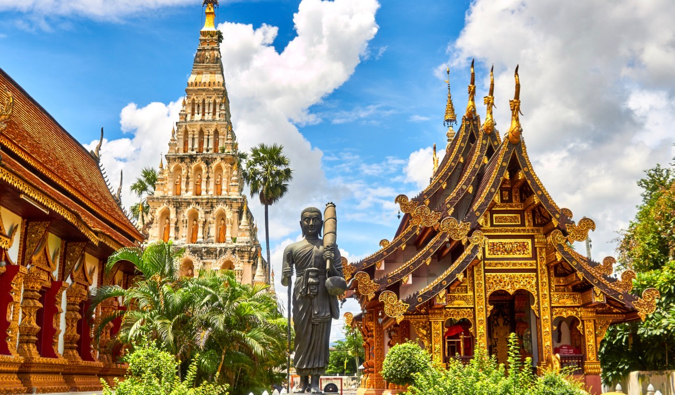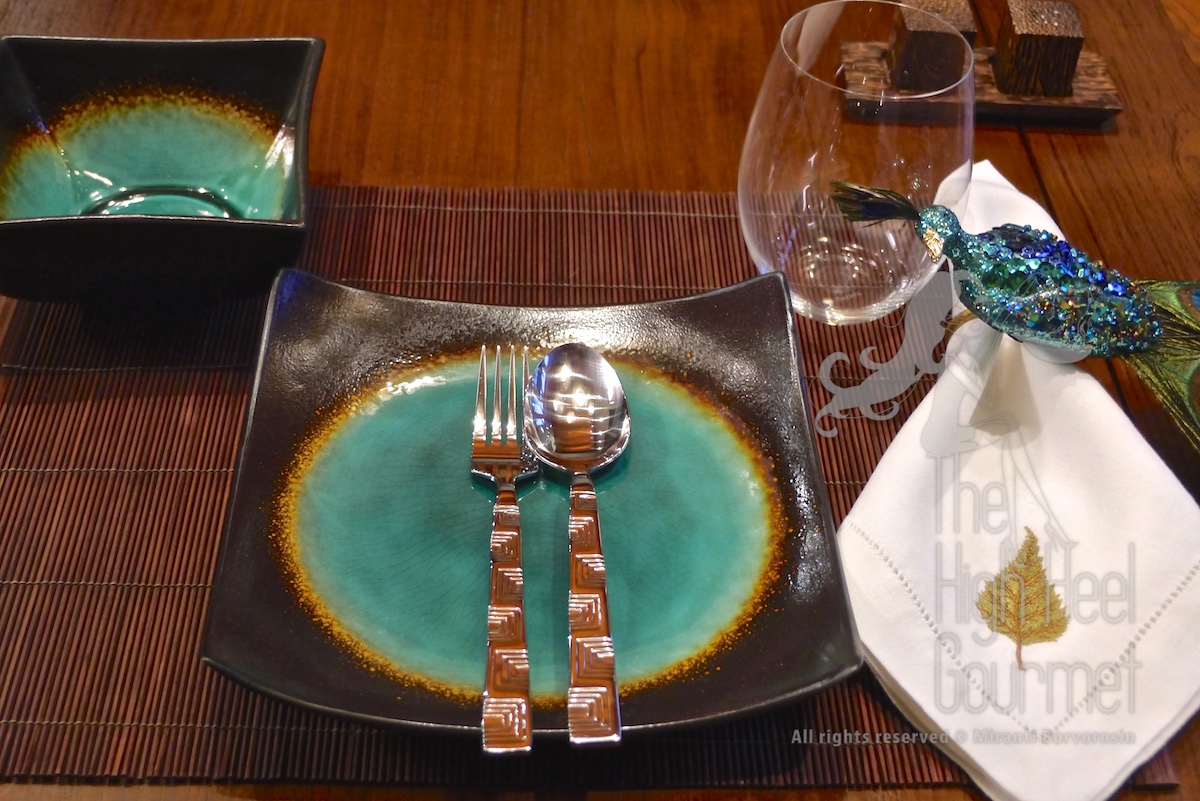American in Thailand: What to Expect, What to Avoid

Introduction
Welcome to Thailand, a country known for its vibrant culture, delicious cuisine, and warm hospitality. As you embark on your journey to explore this enchanting destination, it's essential to familiarize yourself with the cultural nuances to make the most of your experience.
In this guide, we will delve into the various aspects of Thai culture, from greetings and dining etiquette to language barriers and safety tips. By understanding and respecting these customs, you'll forge deeper connections with the locals and immerse yourself in the rich tapestry of Thai traditions.
Greetings and Respectful Behavior
When meeting someone in Thailand, a traditional greeting involves pressing the palms together in a prayer-like gesture known as the "wai". The higher the hands are placed, the greater the respect shown. Remember to return the wai to show courtesy and acknowledge the individual's status.
Understanding Thai Social Norms
Thai society places a strong emphasis on respect, humility, and saving face. Avoid confrontational behaviour or raising your voice in public, as maintaining harmony is highly valued. Additionally, it is customary to remove your shoes before entering homes or sacred places as a sign of respect.
Food and Dining Etiquette
Spicy Food Alert
Thai cuisine is renowned for its bold and spicy flavours, so be prepared for dishes that pack a punch. If you're not a fan of spicy food, don't hesitate to request milder options.
Modesty and Tasting Habits
When dining in Thailand, remember to cover your shoulders and knees, especially when visiting temples. It's customary to take small portions of each dish and share communal dishes with others at the table. Stay tuned for more insights on personal safety, language barriers, and cultural sensitivities as you navigate the captivating world of Thailand. Enjoy the journey!

Cultural Differences in Thailand
Thailand's rich cultural heritage is characterized by unique customs and traditions that may differ from what you're accustomed to. Understanding these nuances will enrich your travel experience and enhance your interactions with the locals.
Greetings and Respectful Behavior
- The traditional Thai greeting, known as the "wai," involves placing your hands together in a prayer-like gesture. The higher the hands, the more respect you show.
- When greeting someone, it is common to use a respectful title like "Khun" followed by their first name.
Understanding Thai Social Norms
- Respect is a cornerstone of Thai society, with an emphasis on politeness and deference towards others.
- Saving face is crucial in Thai culture, so avoiding confrontational or aggressive behaviour is key. Harmony and maintaining peaceful interactions are highly valued.
Thai social norms prioritize humility and group harmony over individual expression. Demonstrating respect and adapting to these customs will help you navigate and appreciate the cultural intricacies of Thailand seamlessly.

Food and Dining Etiquette
Embark on a gastronomic journey through Thailand's vibrant culinary landscape, where flavours burst with a symphony of tastes and aromas. Embrace the unique dining customs and etiquettes to savour every bite of Thai cuisine authentically.
Spicy Food Alert
- Thai cuisine is renowned for its bold and fiery dishes that celebrate the harmony of sweet, sour, salty, and spicy flavours.
- If you're not accustomed to spicy food, don't hesitate to request milder options or ask for chilli to be served on the side.
Modesty and Tasting Habits
- When dining in Thailand, dress modestly, especially when visiting temples or formal dining establishments. Avoid revealing clothing to show respect for the culture and customs.
- Thai dining is a communal experience where dishes are meant to be shared. Take small portions of each dish to appreciate a variety of flavors and textures.
Indulge in the vibrant tapestry of Thai cuisine, where every dish tells a story of tradition and innovation. By embracing the local dining etiquette and tasting customs, you'll not only satisfy your palate but also gain a deeper appreciation for the cultural significance of food in Thailand.

Personal Safety and Scams
As you explore the enchanting streets of Thailand, it's essential to prioritize your safety and be vigilant against potential scams. By staying informed and adopting precautionary measures, you can navigate the bustling cityscape with confidence.
Avoiding Tourist Scams
- Be cautious of scams targeting tourists, such as overpriced tuk-tuk rides, gem scams, and fake travel agencies. Always verify prices and services before committing.
- Beware of strangers offering unsolicited help or discounts, especially in popular tourist areas. Trust your instincts and avoid situations that seem too good to be true.
Staying Safe in Public Places
- Keep your belongings secure and be mindful of pickpockets in crowded markets, public transportation, and tourist attractions.
- Avoid displaying expensive jewellery or valuables to deter potential thieves. Keep a close eye on your belongings and consider using anti-theft bags or money belts.
By staying alert, maintaining situational awareness, and actively safeguarding your possessions, you can enjoy a worry-free exploration of Thailand's diverse landscapes and bustling cityscapes. Remember that personal safety is paramount, and a few simple precautions can go a long way in ensuring a memorable and safe travel experience.

Language Barriers and Communication
While language differences may pose a challenge, effective communication goes beyond words. Discover how to bridge the gap and connect with the vibrant people of Thailand through both verbal and non-verbal cues.
Basic Thai Phrases to Know
- "Sawasdee krub/ka" - This traditional greeting is a polite way to say hello.
- "Kop khun krub/ka" - Show gratitude by saying thank you with this phrase.
- "Chai" and "Mai Chai" - Use these words for yes and no responses, respectively.
- "Ao" - When ordering food or items, say this word meaning "I want."
Using Non-verbal Communication
- Hand Gestures: Thais often use hand signals to communicate emotions or convey messages. Be mindful of your gestures to avoid misunderstandings.
- Smiling: The universal language of a smile can transcend barriers. A warm smile can convey friendliness and openness.
- Body Language: Pay attention to your posture and gestures. Avoid pointing your feet at others, as it is considered disrespectful in Thai culture.
By familiarizing yourself with basic Thai phrases and embracing non-verbal communication cues, you can enhance your interactions and forge meaningful connections with the locals. Communication is not just about language; it's about understanding and respecting cultural nuances that enrich your travel experience in Thailand.
Respect for the Monarchy and Religion
In Thailand, reverence for the monarchy and Buddhism is deeply ingrained in the culture. Show respect for these fundamental pillars of Thai society to honor tradition and demonstrate cultural sensitivity throughout your stay.
Understanding Thai Monarchy Etiquette
- Addressing Royalty: When mentioning the Thai royal family, speak with reverence and refrain from making any disrespectful remarks.
- Standing for the Royal Anthem: If you are present during the playing of the royal anthem, stand up and show respect by remaining silent until it concludes.
- Images of the King: Treat images of the king and queen with the utmost respect. Avoid stepping on or disrespecting any materials featuring the royal family.
Cultural Sensitivity towards Buddhism
- Visiting Temples: When visiting Buddhist temples, dress modestly and cover your shoulders and knees out of respect for the sacred space.
- Removing Shoes: Before entering a temple or someone's home, remove your shoes to show reverence for the premises.
- Interacting with Monks: When speaking to monks, maintain a respectful distance and avoid making physical contact with them.
By adhering to the protocols related to the monarchy and Buddhism in Thailand, you not only show respect for the local customs but also demonstrate your appreciation for the rich heritage and spiritual beliefs that shape the Thai way of life. Embrace these traditions with an open heart and a spirit of cultural understanding during your travels in the Land of Smiles.
Conclusion
As you prepare to bid farewell to the captivating realm of Thailand, reflect on the cultural insights and etiquette tips that have enriched your journey. Embracing the local customs and traditions has not only enhanced your travel experience but also fostered meaningful connections with the warm-hearted people of Thailand.
A Journey of Discovery
- Cultural Immersion: By immersing yourself in the diverse customs and social norms of Thailand, you have gained a deeper understanding of the local way of life.
- Respectful Interactions: Your efforts to show respect for the monarchy, Buddhism, and traditional values have been met with warmth and appreciation by the Thai community.
- Safety and Awareness: Through vigilance and precautionary measures, you've navigated the bustling streets of Thailand with confidence and mindfulness.
A Legacy of Appreciation
- Memorable Dining Experiences: From savouring spicy delicacies to embracing communal dining customs, the flavours of Thailand have left a lasting impression on your palate.
- Effective Communication: By mastering basic Thai phrases and non-verbal cues, you've transcended language barriers and fostered genuine connections with locals.
- Cultural Sensitivity: Your respect for the monarchy and Buddhism reflects a deep appreciation for the spiritual and historical foundations that define Thai culture.
As you carry the memories of your Thai adventure with you, remember that cultural immersion is a two-way street. Your willingness to learn, adapt, and respect the customs of Thailand has not only enriched your travels but also contributed to a legacy of cross-cultural understanding and appreciation. Until we meet again, may your spirit be forever touched by the enchanting spirit of the Land of Smiles.
